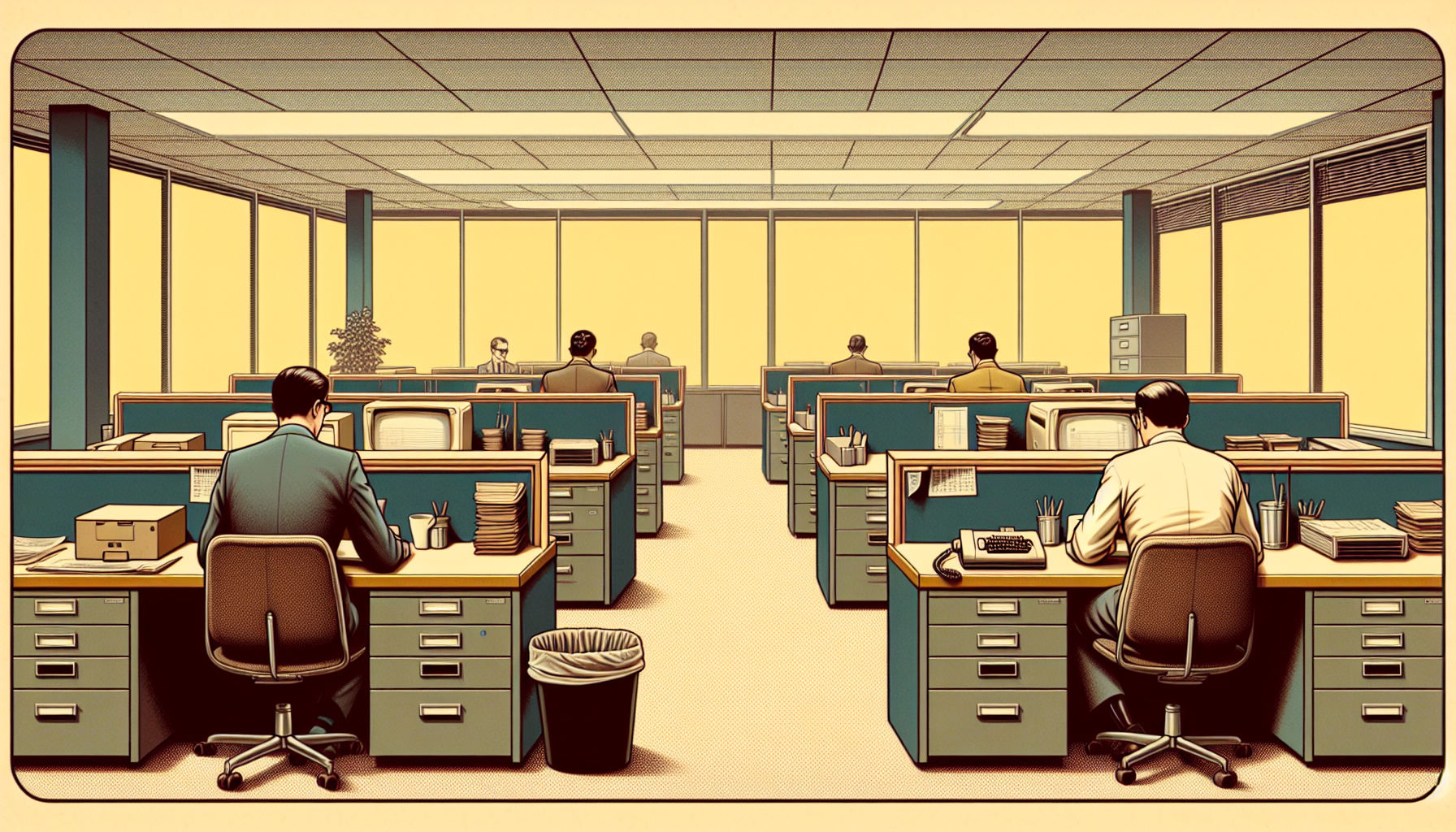Once upon a time, the word “work” meant something simple. It was the thing you did to avoid starvation, and occasionally, to buy a nice pair of shoes. Fast forward to the present, and work is something we often define ourselves by. We ask each other, “What do you do?” almost before we ask, “What’s your name?” Work gives us more than just money—it gives us structure, identity, and at least a few acceptable ways to spend a Monday morning.
Enter artificial intelligence. With its knack for turning our beloved routines upside down, AI is rapidly reimagining what can be done by a human—and what can be done by a line of code written by another human, or perhaps, by AI itself. The age of automation isn’t looming; it’s already checking your emails for spelling mistakes, recommending your next movie, and maybe, just maybe, eyeing your job.
When Machines Work, What Do We Do?
The big question isn’t whether AI will take jobs. It already has, and it will take more. The more interesting question is: What becomes of human purpose when humans don’t need to work for survival?
Many people believe that without traditional employment, we’ll fall into existential ennui from which only cat videos may save us. After all, if work is woven into our very sense of worth, who are we when the machines do the weaving?
But here’s the twist: the meaning of work—and by extension, the meaning of life—has always been more flexible than we admit. For centuries, societies have adjusted to new tools, new technologies, and new jobs that didn’t exist a generation before. Shepherds became textile workers. Scribes became typists. Typists became… well, most of them became something else. Yet humanity, on the whole, kept chugging along, reimagining itself every time the industrial wheel turned.
Redefining Purpose Beyond Productivity
We like to measure our success in productivity: the great tally of widgets built, contracts signed, or emails sent (and ignored). AI is fundamentally better than us at optimizing, scheduling, and analyzing. Give a machine a repetitive task, and it will do it long after your coffee breaks have become legend. But is production all there is to work, or to us?
Purpose, for humans, isn’t an industrial recipe. It is brewed in an altogether messier kitchen. It grows in challenges, collaborations, creativity, and care—qualities that AI struggles to replicate (so far, anyway). The sculptor chisels not just to shape stone, but to share a vision. The nurse cares not only for a wage, but for the quiet meaning of tending to others’ needs. Even the coder who makes AI dreams of solving a puzzle, or contributing to a story bigger than herself.
If AI automates away routine jobs, it might be freeing us to focus more on the aspects of work that machines can’t so easily mimic: empathy, imagination, ambiguity, ethics, and the kind of deep relationship-building that keeps book clubs and families together.
The Dawn of the “Post-Work” Era?
Some philosophers dream of a “post-work society”—a world where AI creates such abundance that basic needs are met for everyone and no one is compelled to work for food or shelter. On some days, this sounds suspiciously like paradise; on others, like a recipe for malaise, ennui, and way too many mediocre hobbyists learning ukulele.
In practice, a post-work world is not about the end of effort, but the reinvention of effort. It invites us to ask: What would you do if you didn’t have to do anything? Would you create, care, explore? Would you teach or learn, build or heal, nurture a garden or write music no algorithm could predict?
These questions press us to revisit what makes us human. Perhaps it is not our ability to out-calculate the calculator, but to out-dream it. When we are no longer needed for drudgery, new domains of meaning can open: play, art, philosophy, and connection. (Yes, even if half the art is just pictures of cats in hats.)
New Ethical Frontiers
Of course, not everyone is equally optimistic about the rise of automation. There are real risks: increased inequality as the owners of AI systems accrue disproportionate wealth, the erosion of workplace communities, or the sense of idleness that may haunt many if economic systems don’t adjust. To navigate these challenges, we’ll need more than just new technology; we’ll need new ethics, new social structures, and perhaps even a new story about what it means to live a “good life.”
This might sound daunting. It also sounds exciting. We get to ask ourselves what we truly value, beyond the chase of the next paycheck. We can determine whether work is something we do—or something we are. We may even choose, as individuals and societies, to focus on kinds of work that were long undervalued: care for others, stewardship of the planet, creation of art, and the nurture of wisdom.
Final Thoughts (for Now)
AI may one day outdo us in many of the tasks we now call “work.” But even the most impressive algorithm has trouble contemplating mortality, appreciating a subtle joke, or falling in love with a sunset. As automation handles the necessary, we have the opportunity—and perhaps the obligation—to cultivate the meaningful, the beautiful, and the unrepeatably human.
So, in the age of AI, the meaning of work may shift from efficient production to purposeful presence. We are not what we produce. We are what we pursue, what we nurture, what we dream. And if that means a world with a few more philosophers and a few fewer monotonous jobs, well, perhaps that’s progress—even if it means the machines get all the good parking spaces.

Leave a Reply